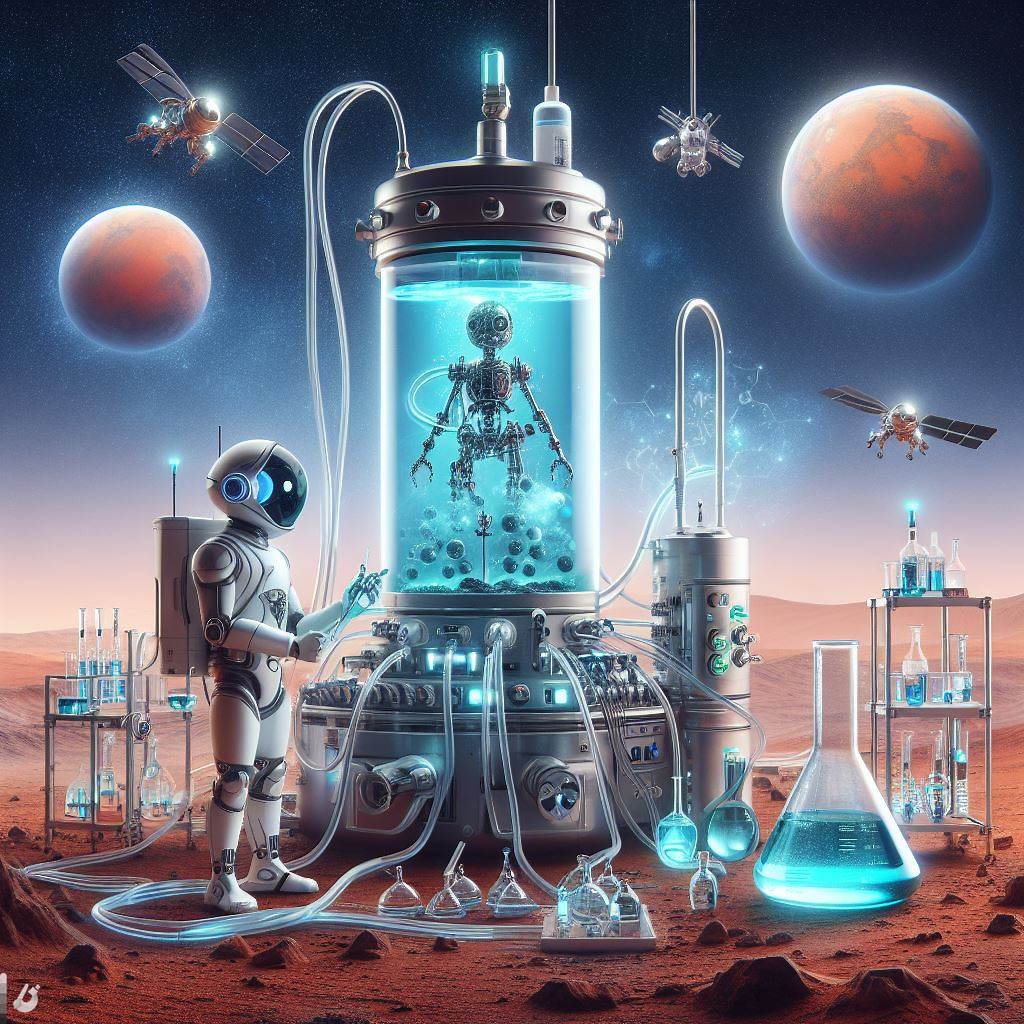
In a groundbreaking study published in Nature Synthesis, researchers reveal that an AI-powered robot chemist could hold the key to solving the challenge of producing essential oxygen for human survival on Mars. The study highlights the superior capabilities of an AI system compared to humans in swiftly identifying optimal catalysts for the oxygen evolution reaction (OER) from the vast array of possibilities on the red planet.
The primary obstacle faced by human scientists lies in the complexity of Mars' oxygen evolution reaction catalysts, numbering over a million. The study emphasizes that this abundance of potential catalysts poses a significant challenge for humans attempting to manually synthesize oxygen. Moreover, the communication delay between Earth and Mars, with transmissions taking up to 20 minutes, further complicates problem-solving efforts.
"Oxygen supply must be the top priority for any human activity on Mars because rocket propellants and life support systems consume substantial amounts of oxygen, which cannot be replenished from the Martian atmosphere," assert the authors of the study.
The AI robot chemist, however, offers a revolutionary solution. By automating the synthesis and optimization of catalysts for the oxygen evolution reaction from Martian meteorites, the AI system operates without any human intervention. This streamlined process encompasses Martian ore pretreatment, catalyst synthesis, characterization, testing, and the crucial search for the optimal catalyst formula.
"Here we demonstrate a robotic artificial-intelligence chemist for automated synthesis and intelligent optimization of catalysts for the oxygen evolution reaction from Martian meteorites," state the authors. "The entire process, including Martian ore pretreatment, catalyst synthesis, characterization, testing, and, most importantly, the search for the optimal catalyst formula, is performed without human intervention."
The study envisions a remarkable time reduction in solving this critical challenge. Instead of the lifetime it would take a human using trial-and-error methods, the AI robot chemist can accomplish the task within six weeks. This achievement is attributed to the AI system's ability to build a predictive model through learning from nearly 30,000 theoretical datasets and 243 experimental datasets.
As reported by Universe Today, advancements in robot chemistry have been steadily progressing, with experiments in 2020 showcasing the use of a mobile robot to enhance hydrogen production from water. The study's authors believe that similar technology could soon be deployed on Mars, paving the way for future human exploration.
In essence, this groundbreaking research heralds a new era in space exploration, with AI-driven technology playing a pivotal role in addressing fundamental challenges, such as oxygen production, and significantly accelerating the prospects of human survival on Mars.